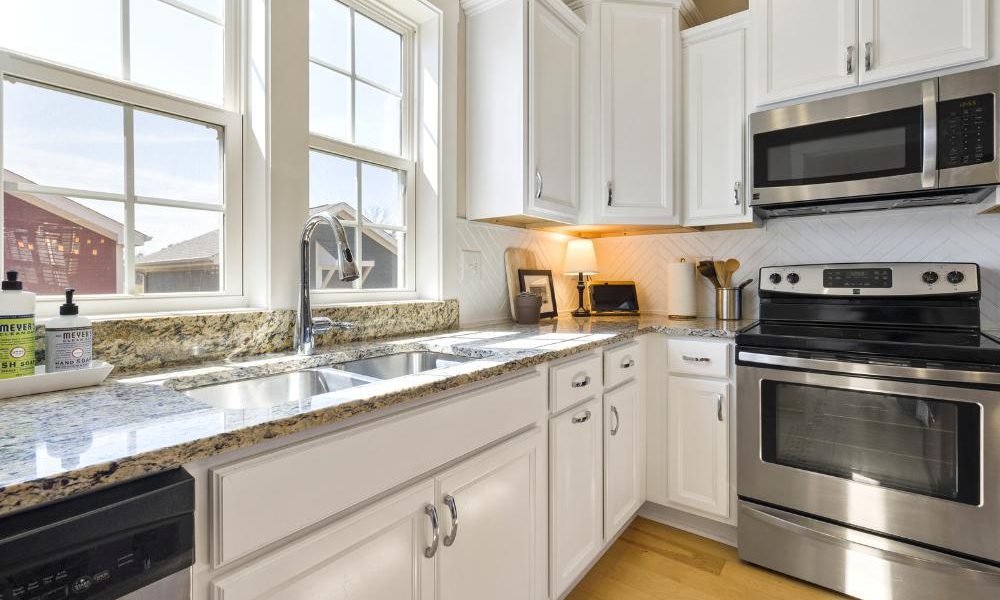When it comes to choosing the right cooking appliances for your kitchen, the debate often boils down to gas versus electric. Each type of stove has its own set of advantages and disadvantages, and the best choice depends on your cooking style, kitchen setup, and personal preferences. In this comprehensive guide, we’ll explore the pros and cons of gas and electric cooking appliances, featuring insights from culinary experts and recent studies. Whether you’re a seasoned chef or a home cook, understanding these differences will help you make an informed decision for your kitchen.
The Appeal of Gas Stoves
Instant Heat and Control
Alton Brown, a renowned food scientist and TV personality, captures the essence of gas cooking: “Gas gives you that immediate control that I think so many people who are really into cooking really crave. You get that visual feedback, and you know instantly how much heat you’re putting into a pan” (Source: The New York Times).
Gas stoves are prized for their instant heat and precise temperature control. The visible flame allows cooks to adjust the heat quickly and accurately, making it ideal for techniques that require rapid changes in temperature, such as sautéing and searing.
Personal Anecdote: Growing up, my family’s kitchen always had a gas stove. I loved watching the blue flames dance as my mother cooked. When I moved into my first apartment, I made sure it had a gas stove because it felt familiar and reliable.
Versatility and Performance
Lidia Bastianich, a chef and restaurateur, echoes this sentiment: “Gas is still my favorite for cooking. It gives you that instant heat and the ability to see the flame, which is important for certain cooking techniques” (Source: Lidia’s Italy).
Gas stoves are versatile and perform well with various cookware, including cast iron and stainless steel. They are also preferred for cooking methods that require high heat, such as stir-frying.
Cons of Gas Stoves
Despite their benefits, gas stoves have some drawbacks. They can be less energy-efficient than electric models and may contribute to indoor air pollution due to the emission of nitrogen dioxide (NO2). A study by LeafScore highlights the potential health risks associated with NO2 emissions from gas stoves and provides tips for reducing exposure (Source: LeafScore).
The Advantages of Electric Stoves
Even Heating and Safety
Melissa Clark, a food writer and cookbook author, appreciates the precision of electric cooktops: “I love the even heat of an induction cooktop. It’s so precise and responsive. And it’s also really safe, because the surface doesn’t get hot unless there’s a pan on it” (Source: The New York Times).
Electric stoves, especially induction models, offer even heating and precise temperature control. Induction cooktops use magnetic fields to heat the cookware directly, making them incredibly efficient and responsive.
Personal Anecdote: When I first tried an induction cooktop, I was amazed at how quickly it heated up and how easy it was to control the temperature. It felt like a game-changer for my cooking routine.
Energy Efficiency and Environmental Impact
Electric stoves, particularly induction cooktops, are more energy-efficient than gas stoves. They heat up quickly and transfer energy directly to the cookware, resulting in less wasted heat. According to a study by the American Council for an Energy-Efficient Economy (ACEEE), induction cooking technology offers significant energy savings and environmental benefits (Source: ACEEE).
Cons of Electric Stoves
Electric stoves have their own set of challenges. They may not provide the same level of immediate heat control as gas stoves, and some cooks find them less intuitive to use. Additionally, induction cooktops require compatible cookware, which can be an added expense.
Making the Right Choice for Your Kitchen
Cooking Style and Preferences
Your cooking style plays a crucial role in determining the best stove for your kitchen. If you frequently cook dishes that require precise temperature control and rapid heat adjustments, a gas stove might be the better option. On the other hand, if you value energy efficiency and safety, an electric stove, especially an induction cooktop, could be the right choice.
Christopher Kimball, founder of Milk Street Kitchen, is a proponent of induction cooking: “I’m a big fan of induction cooking. It’s fast, efficient, and safe. And it’s also very versatile – you can use it for everything from searing to simmering” (Source: Milk Street Kitchen).
Kitchen Setup and Infrastructure
Consider your kitchen’s existing infrastructure when choosing between gas and electric. Installing a gas stove requires a natural gas line, which may not be available in all homes. Electric stoves, on the other hand, simply need an electrical outlet, making them easier to install in some cases.
Budget and Long-Term Costs
While gas stoves can be more expensive to install due to the need for a gas line, they often have lower operating costs because natural gas is typically cheaper than electricity. Electric stoves, particularly induction models, may have higher upfront costs but can lead to long-term savings due to their energy efficiency.
Trends and Innovations in Kitchen Appliances
Smart Technology
The integration of smart technology in kitchen appliances is a growing trend. Smart stoves and cooktops offer features such as remote control, pre-programmed cooking settings, and energy usage monitoring. These innovations provide convenience and can help improve cooking efficiency.
Induction Cooking
Induction cooktops are becoming increasingly popular due to their efficiency and safety. They offer precise temperature control and quick heating, making them ideal for both professional chefs and home cooks. Nik Sharma, a food writer and photographer, appreciates the benefits of induction cooking: “I grew up cooking on a gas stove, and I still prefer it for certain dishes. But I also appreciate the convenience and safety of induction cooking” (Source: A Brown Table).
Sustainable Cooking
As environmental awareness grows, more consumers are looking for eco-friendly kitchen appliances. Induction cooktops are a sustainable choice due to their energy efficiency and reduced heat emissions. Additionally, manufacturers are developing gas stoves with lower NO2 emissions to address indoor air quality concerns.
Conclusion
Choosing the right kitchen stove is a personal decision that depends on your cooking style, kitchen setup, and budget. Gas stoves offer immediate heat and precise control, making them a favorite among many chefs and home cooks. However, they can contribute to indoor air pollution and may be less energy-efficient than electric models.
Electric stoves, especially induction cooktops, provide even heating, energy efficiency, and enhanced safety features. They are ideal for those who prioritize sustainability and precise temperature control. However, they may require compatible cookware and have higher upfront costs.




